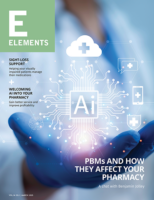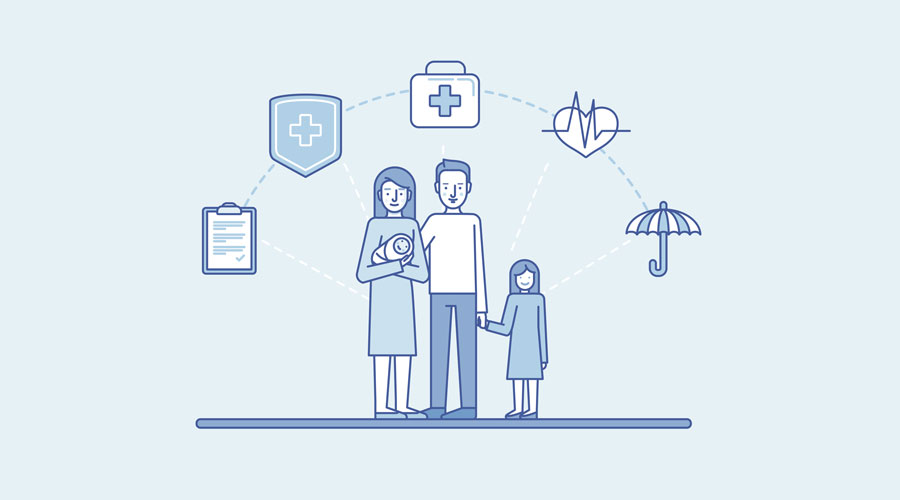Most people wouldn’t think of a pharmacy as a dangerous place to work. But as a pharmacist, you know just how dangerous your pharmacy can be. From biohazards to physical aches and pains, knowing how to effectively manage these risks is key to helping protect your staff and bottom line.
Here are the top 10 injury risks that most pharmacies are faced with and how you can avoid them.
Infection or illness
Having contact with sick patients who come into your pharmacy is one of your biggest risks. To keep you and your staff healthy, clean and disinfect your work areas regularly and wear masks and rubber gloves to protect yourselves.
Slips and falls
These are the leading cause of injury and can happen in any workplace. To avoid these accidents, keep work areas clutter-free, install and maintain non-slip flooring, install adequate lighting, and educate your staff on keeping things tidy.
Burns and cuts
Cuts can happen easily from sharp or broken equipment and instruments. Burns can happen when working with equipment such as heat sealers and around electrical cords and appliances. To avoid injuries, train your staff in safe work practices, use protective clothing, be sure tools are stored properly, and have a first-aid kit that’s easy to access.
Repetitive motion injuries
Avoid aches and pains from computer work, sitting and standing postures, and reading and writing for long periods of time by designing ergonomic workstations, tools that automate tasks, and adequate safety training. If you have a job with a lot of repetition, take breaks to stretch and shake out your limbs.
Fatigue-related pain
You and your staff do a lot of standing and walking each day, which can cause fatigue, back pain, varicose veins, and other painful issues. Consider installing anti-fatigue mats at fixed workstations, wear comfortable shoes with good support, and alternate between sitting and standing often.
Strains and sprains
Lifting heavy objects can cause numerous injuries, such as slipped discs, muscle aches, and even hemorrhoids. Practice safe lifting techniques, get help from a coworker when something is too heavy, and make use of equipment such as a dolly or a back brace.
Eye strain and pain
You stare at a computer screen for long periods of time each day. Poor lighting, improper computer-screen brightness settings, and poorly designed workstations can lead to eye strain, astigmatism, myopia, and migraines. Adjust your workspace to ease any discomfort, and look away from the screen and focus on something in the distance from time to time.
Chemical hazards
If you’re compounding drugs, you’re exposed to medication powder, liquid spills, and hazardous vapors. Put in place safe work procedures to handle spills and other accidents involving harmful substances. Always wear protective gear, including eye protection, gowns, and gloves.
Biological hazards
Because pharmacies now offer vaccines and testing procedures that require skin piercings such as glucose or cholesterol tests, you are exposed to blood and other bodily fluids every day. Always keep yourself safe and wear protective gear.
Psychological hazards
To help alleviate your daily work stress brought on by long hours, a heavy workload, and abusive customers and/or employees, look at your management and scheduling policies and consider changes to your work environment. Educate your staff about violence awareness, avoidance, and de-escalation.
By managing these risks in your pharmacy, you’re not only keeping your pharmacy and staff safe, but protecting your bottom line from medical and legal costs, workers’ compensation claims, and higher workers’ comp premiums.
A Member-Owned Company Serving Independent Pharmacies
PBA Health is dedicated to helping independent pharmacies reach their full potential on the buy-side of their business. Founded and owned by pharmacists, PBA Health serves independent pharmacies with group purchasing services, wholesaler contract negotiations, proprietary purchasing tools, and more.
An HDA member, PBA Health operates its own NABP-accredited secondary wholesaler with more than 6,000 SKUs, including brands, generics, narcotics CII-CV, cold-storage products, and over-the-counter (OTC) products — offering the lowest prices in the secondary market.












